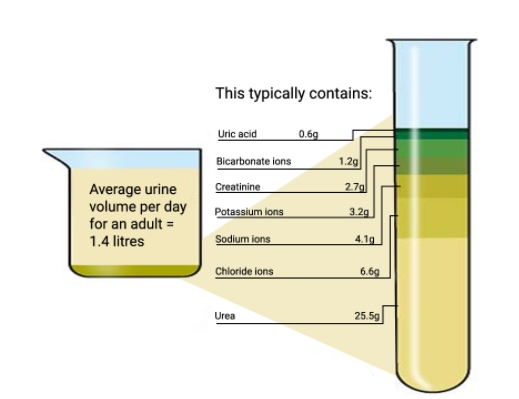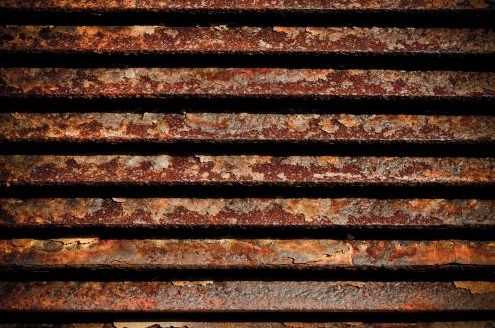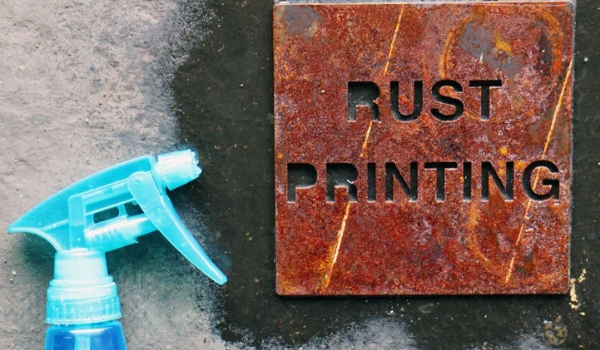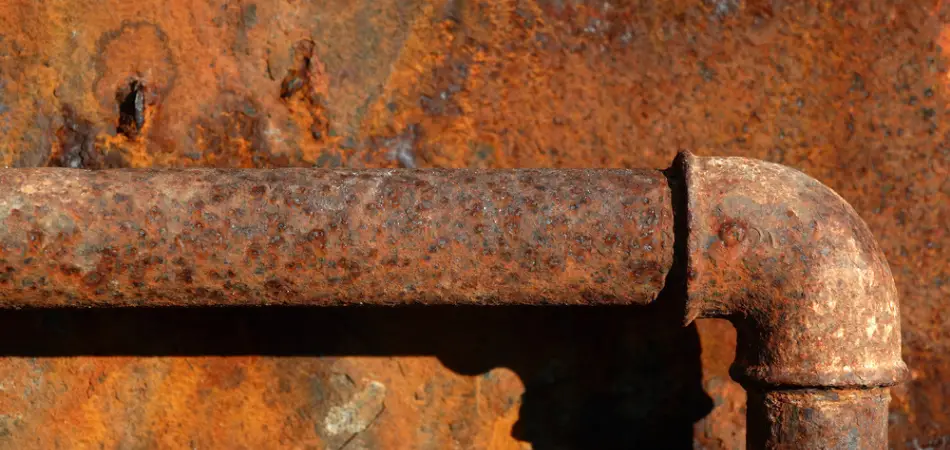The acid in urine can damage or eat away at the protective coating that many paints have. Over time, this can cause the paint to blister, soften, and crack. Urine is also corrosive because it damages metals. Salt crystals in the urine can form a crusty deposit on different metal surfaces over time. So, does urine cause rust?
Yes, Urine contains uric acid and ammonia, which lead to corrosion and consequently rust in metals. One of the growing concerns on metals such as refrigerators, street light poles, and even air grills is rust caused by urine. This urine could be from humans or animals such as cats and dogs or other pets.
Also, Urine chemicals can cause damage to the metal. As the nitrates in urine oxidize with the air, they will begin rusting on metal surfaces. However, the rate at which rust accumulates depends on many factors but is generally very slow.
In addition, you can find more information on urine, the effect on metals, and ways you can prevent your metals from urine for future damages.
Contents
Contents of Urine
Urine is a by-product from human or animal bodies which is excreted through a process called urination and Through a breakdown system called the excretory system. You might be wondering, since urine is from the human body why should it become such a problem as it can rust even metals.

The answer is in the analysis of the content of the urine. Urine contains about 95% water. Other components of urine include urea, chloride, sodium, potassium, creatinine and some other organic and inorganic compounds which are basically dissolved irons.
Urine contains ammonia and water. Ammonia is very acidic and corrosive and can be dangerous. Urine is able to rust metals because, first, it contains water, and second, because it contains ammonia. This is equally applicable to even the urine of dogs and cats.
There are two reasons why urine can lead to rust. First is that it contains water, and the other is that it contains ammonia. Rust happens when iron reacts with oxygen and moisture contents. The oxygen reaction prompts a chain of reactions which finally lead to rust.
Thus, except for the noble metals such as platinum, gold and silver which do not rust, other metals will rust when urine is constantly poured on them.
Thus, since the urine of all mammals has within them some high concentrations of ions with the chloride ion content being very high, the chloride can attack the surface of steel and lead to reactions that would trigger rust.
Which of Your Metals Are in Danger of Rust by Urine?
While all metals, except the noble metals, can be acted upon by urine so that it leads to rust, some metal objects are more exposed or vulnerable to these urines than others.

For instance, the air conditioner fins are one of the most exposed objects to the rust of urine. This is because, first, pets are always in the habit of hiding around your air conditioner fins. Secondly, these fins are mostly made of aluminum.
With time, the urine of these pets, or even humans begin to cause aluminum to rust. Ever asked yourself why many dog crates are made out of zinc-plated steel rather than aluminum?
Well, yes, it is exactly for the reason of the danger of their urine, since you cannot guarantee that these pets will not urinate inside the crate and damage the metal.
The danger is that it is quite difficult to observe this damage when it begins initially due to its hidden location on the air conditioner
The corrosion may begin from a very small area, and may not but when not taken care of, gradually spreads, especially if you allow the pets to keep peeing on the unit. This will continue to corrode the fins of the air conditioner.
Urine from dogs equally exposes the metal street light poles to rust. Dogs mark territories with their urines, and usually, they do this right on city street light metal poles. When this becomes consistent, it leads to corrosion on the foot of the metal pole. This gradually leads to rust and eventually damage to the pole.
How to Prevent or Remove Rust Caused by Urine?
Preventing rust from urine ranges from the choice of metal for your objects to coating and painting the metal. For constructions such as street lights, it is advisable not to use steel. Steel is the metal most susceptible to rust. Steel is made of iron and has exposure to oxygen. This not only causes oxidation but accelerates it to a total rust.

Metal coating is also advised in order to prevent rust from urines. When you galvanize iron or steel with zinc, it slows the rate of oxidation and reduces the impact of urine on your metals.
When you experience rust from urine however, you can either check if it is human urine or urine from pets. If it is human urine, you quickly have to mount restraining placards to notify people from peeing around your metal. If it is a pet, then you have to guide your pet away from your metal or use bar wires to restrain them.
Pets like dogs use urine to mark territories and prevent other dogs from crossing their territories. Their favorite spots for this are usually street light poles or air conditioner fins. Once noticed, bar wires can be used to shield off the metal in question to prevent constant urination and rust.
Conclusion
In this article, I have taken you through the process of rust caused by urine. Urine can cause rust since it contains water and ammonia which is acidic in nature.
The urine that can lead to rust must not be human urine. It can be the urine of dogs, cats or other pets. I hope you enjoyed your reading.


